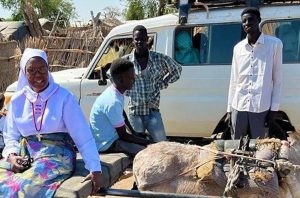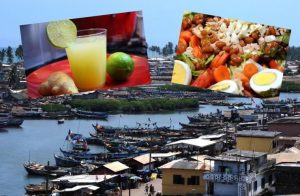Street children in Kenya are often a nuisance to pedestrians and shopkeepers. They are also disliked by local administrators because they are a sore sight in touristic areas. They should not be there, full stop. That’s why, once and again, local politicians state their will to clean up the scene.
Various officers of Nakuru County have expressed the impropriety of street people living in the town. Some claim that Hon. Kinuthia Mbugua, a former Administration Police Commander now Nakuru County governor, also has promised to deal with the problem. That promise became a reality on April 24th, 2016. At dawn, police officers went around town to arrest street people. Three hundred and sixty of them, youth and children, were taken to the central police station and detained.
“I was arrested at 6am in town” – says Seraphina, 20, who has been living on the street since she was 14. “I was taken to the station and remained there until the evening. I was told I would be given a job and set free. I was put on a lorry. When we reached Naivasha, we were thrown out. We slept in the wild and the morning after, we tried to walk back to Nakuru – a distance of about 70 km. People helped us with food and water on the way. I do not know exactly where we were taken, but it is a place in the wilderness beyond Naivasha prison. In the lorry, we were told to lay down and keep our faces down so as not to see where we were taken. Those who tried to look were beaten with the butt of rifles. They did not come back, they were lost in the wild. We were divided into smaller groups. I am not sure who went where”.
The story is confirmed by many of youths who were arrested and then released in the wild in different spots far from Nakuru. Charles Opyo is the chairman of the street families association. He has lived in the streets since 1992. He recounts his side of the story..
“One day in April, last year, I was told that some of our youth had been taken by the police. They had been taken to the central police station. I went there and I saw them in the cells. I asked why they were arrested. The policemen refused to answer. I was told to talk to the policemen who arrested them but they had gone for the day, so I had to go back the day after. I did so and I found that all of those who were imprisoned had been taken away. I was told they had gone to the courts. I went there, but no one was there. I returned to the police station and I was told that no one was there either.”
“I looked for them for three days. They were nowhere to be seen. At the prison I was told no one had been taken there. A week later I found one of those who had been arrested. His legs were swollen and he could not talk, he just wanted water. He later told me how he was arrested early in the morning and was taken to the police station by car. This car is actually a lorry that the city council workers use to carry their wares around town and to take the bicycles they impound to their headquarters.”
“Later I came to know that these youth were taken to the area of Naivasha and Nyahururu. Not near the towns, but in faraway areas, some deep inside the forest. In the following days I met with more of those youth. They all had the same story. They also remembered the names of some of the policemen who participated in the raid. These had been transferred in the past months.”
“I asked for some information from the driver of that lorry. The people of the city council then intervened and told me that I had no business asking for this story since I had no child involved. I answered that I was the leader of the street people and I had the duty to look after their welfare. I was beaten by those officials. I went back to the police station to find out why and what had happened. I was told to stop making inquiries and never to say anything about those events again. It was better to remain silent, they said”.
All the witnesses confirm the development of such events, and especially that a large group of street youth are still unaccounted for. “According to my records, continues Opyo, about 360 children and youth were taken away. I called a name roll of those who were registered with us and realised that some were missing. Some we know went to Nairobi, but we have no news about the whereabouts of the others. These are about 60 in all who did not come back, among them a girl who just had a child”.
The operation to clean up Nakuru’s streets was a joint action of police and municipal workers. It clearly could have happened only if ordered from above. Since the first details began to come out in late February this year, the county administration has avoided commenting on the story. It is a very embarrassing story to deal with, especially considering that 2017 is a general election year. The governor and all his administration could easily lose the electorate’s support if they were to be linked to the inhuman treatment of street people. It is not by chance that the first to blow the whistle were politicians opposing governor Mbugua. Unfortunately, even though the public has reacted in support of street people, there are few who ask in which way the local administration intend to tackle the growing problem of unemployment and poverty. Fewer still asked how the human rights of the poorest in society are going to be defended if those mandated to serve and protect accept being a part of illegal actions like these targeting the poor.








